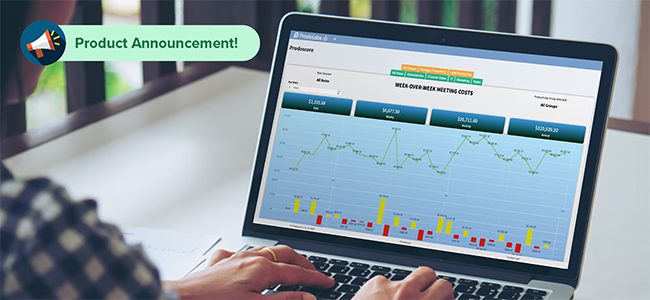Your Employees Have a Right to Disconnect…Here’s How to Help Them
Your state may not have enacted any right to disconnect legislation yet, but that doesn’t mean your employees don’t deserve a break. With more of us working from home, it’s getting increasingly difficult to unplug from the office and that’s bad news for our productivity, performance, and peace of mind.
The US workforce is facing a burnout crisis, with 77% of workers experiencing the condition, and our ‘always on’ attitude is a big reason why. More than one in five Americans can’t disconnect once they’re off the clock and, as a result, their mental health, focus, and motivation are suffering. Managers can help halt this destructive trend, doing their part to model healthier behaviors and providing the support employees need to relax and recharge.
How to Help Your Team Disconnect from Work
Tip 1: Set a Good Example
Sometimes managers are their own worst enemy. Burnout is on the rise among executives, according to a recent report from Future Forum, which found that executives now have 40% more stress and a 20% decline in work-life balance.
A workaholic manager who comes in early and stays late is signaling to their team that this is what it takes to get the job done. Employees look to leaders for cues on appropriate workplace behavior - especially younger workers, a group that is especially prone to burnout - and this pressure to perform can ripple through your team.
If you’ve a tendency to work too hard, take a step back and consider what message you’re giving your employees. If you struggle to switch off, so will they.
Tip 2: Take Vacation
A third of US workers don’t feel comfortable taking vacation time, according to Deloitte, even though the benefits of getting away are well-established. Taking a break lowers stress, improves focus, and enhances productivity, so you need to help your employees get over their reluctance and away from their desks.
Make sure staff are well-briefed on your company’s vacation policy - including details like how much notice they should give and procedures for covering another team member’s work - so they are comfortable taking their allotted time. This structured approach will help them to feel as if they’re taking what’s owed them, rather than asking for a favor.
You should also ensure your workers know that work is off-limits during vacation. 54% of people can’t disconnect from work while on vacation, so don’t be tempted to contact them and make sure their workload is covered so they’re not stressing about what’s waiting for them on their return.
As mentioned, lead by example. If a team manager doesn’t take their vacation or checks in daily from the beach, team members will feel pressure to show the same above-and-beyond work ethic.
Tip 3: Prioritize Wellness
If you want your employees to disconnect, they have to know they can. Embedding a human-centric approach into your workplace culture helps communicate to staff that their well-being is just as important as hitting a deadline or completing a project.
According to Gartner, 96% of organizations have wellness programs, but only 42% of employees know about them. Make sure you’re having open discussions with your team about what they need, what support is available, and why checking their work email at midnight isn’t necessary or healthy.
Tip 4: Build Trust
Managers should try to understand why their employees are having such a hard time disconnecting. Is it productivity guilt? Do they have too much on their plate? Are they angling for a promotion or worried about keeping their job?
Finding out the root cause can help you solve the problem, but first, you need to build trust among your team so they feel comfortable sharing their concerns. Leaders should work to build soft skills such as empathy and compassion so they can identify the roadblocks that are keeping their staff from switching off.
Tip 5: Look Out for Red Flags
How do you know if your employees are on the clock after hours? With employee productivity monitoring solution, Prodoscore. The innovative platform gives managers the insight they need to spot red flags that indicate an employee’s inability to disconnect and heightened risk of burnout.
Prodoscore unobtrusively monitors how staff interact with core cloud-based business tools such as email, CRM platforms, and messaging applications, among others. It collects this data in real-time to give individuals and teams an overall productivity score. This score can then be used to track trends over time - highlighting any dips or increases in performance that could be a sign that something’s wrong.
Know when your employees are working, and when they’re in danger of doing too much, with Prodoscore. Contact our team today to schedule a demonstration or find out more.

